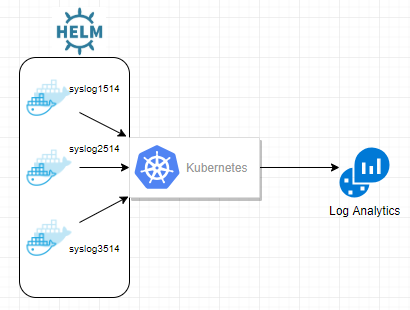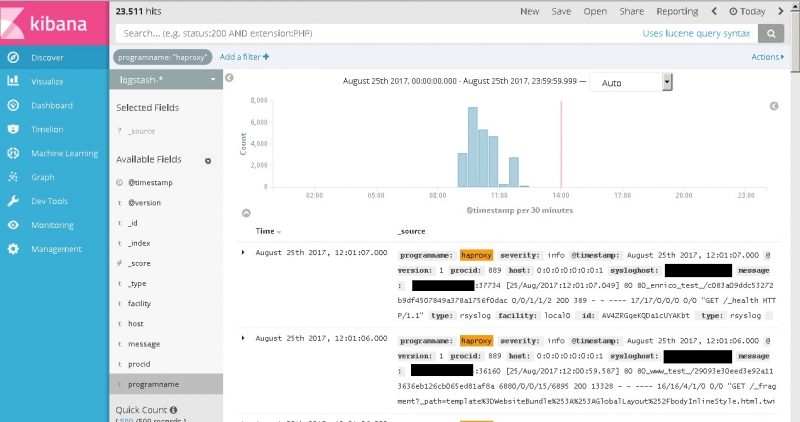

When this happens, the first step in the debugging process is usually to read logs. It solved many issues, but bugs can still occur. Thanks for reading and be sure to let me know what you think in the comment section.Docker changed the way developers build software. In the next post, I will go into running this in production. It can be a daunting task to setup an ELK stack, Docker and compose make it easier to run and manage in dev/production. You can now hit “Create” and you have a working ELK solution.

If you send anything to logstash using: $ echo Boom! | nc 192.168.99.101 5000 If you type that address in a browser, you should see this:Īs you can see the button is greyed out saying “Unable to fetch mapping” My machine name is elk, I do this: › docker-machine ip elk In order to check whether your solution is running you can go to your docker-machine ip. This will create all the containers for us, link them and we’ll have a running solution. Keep in mind here, so far we are working locally, you don’t have to docker-push for any of this to work on your local machine, compose will default to the local image if you have itĬreate a docker-compose.yml file and paste in this content nginx:Ĭommand: elasticsearch =0.0.0.0Ĭommand: "logstash -f /opt/logstash/server/etc/conf.d/" Now that we have our custom docker images, lets move over to composing the solution together using docker-compose Now, we will build the docker image $ docker build -t kensodev/logstash Now, our nginx will need a configuration to use, so lets create that nowĬreate a file called nf in the same directory events "]
#Docker syslog logstash generator
You can use this generator online or any other solution you see fit.Ĭreate a file called kibana.htpasswd in the same directory and paste the content in.įor example: kibana:$apr1$Z/5.LALa$P0hfDGzGNt8VtiumKMyo/0
#Docker syslog logstash password
We will need an htpasswd, this file will contain the username and password combination that users will be required to use in order to view Kibana. Dockers Nginxįirst, lets create the Docker for nginx. In dev we use docker-compose and in production we use chef to orchestrate and provision the containers on top of EC2. If you want to follow this blog post writing the commands and actually having a solution running you will need the followingĭocker is a great way to run this stack in dev/production.

#Docker syslog logstash full
Running ELK stack on docker - full solution


 0 kommentar(er)
0 kommentar(er)
